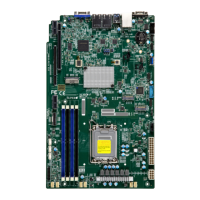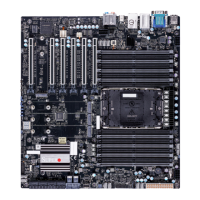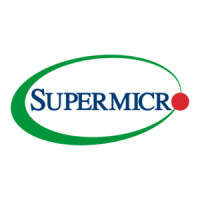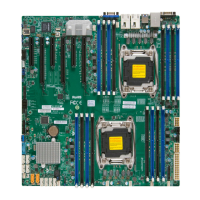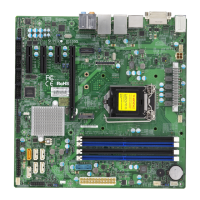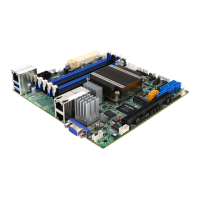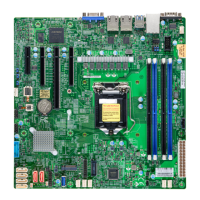Appendix D: UEFI BIOS Recovery
133
Note 2: Before recovering the main BIOS image, conrm that the "Super.ROM" bi-
nary image le you download is the same version or a close version meant for your
motherboard.
D.3 Recovering the BIOS Block with a USB Device
This feature allows the user to recover the main BIOS image using a USB-attached device
without additional utilities used. A USB ash device such as a USB ash or media drive can
be used for this purpose. However, a USB Hard Disk drive cannot be used for BIOS recovery
at this time.
The le system supported by the recovery block is FAT (including FAT12, FAT16, and FAT32),
which is installed on a bootable or non-bootable USB-attached device. However, the BIOS
might need several minutes to locate the SUPER.ROM le if the media size becomes too
large due to the huge volumes of folders and les stored in the device.
To perform UEFI BIOS recovery using a USB-attached device, follow the instructions below:
1. Using a dierent machine, copy the "Super.ROM" binary image le into the disc Root "\"
directory of a USB device or a USB ash or media drive.
Note 1: If you cannot locate the "Super.ROM" le in your driver disk, visit our website
at www.supermicro.com to download the BIOS package. Extract the BIOS binary im-
age into a USB ash device and rename it "Super.ROM" for the BIOS recovery use.
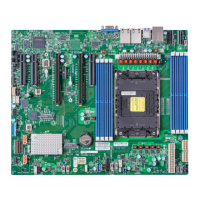
